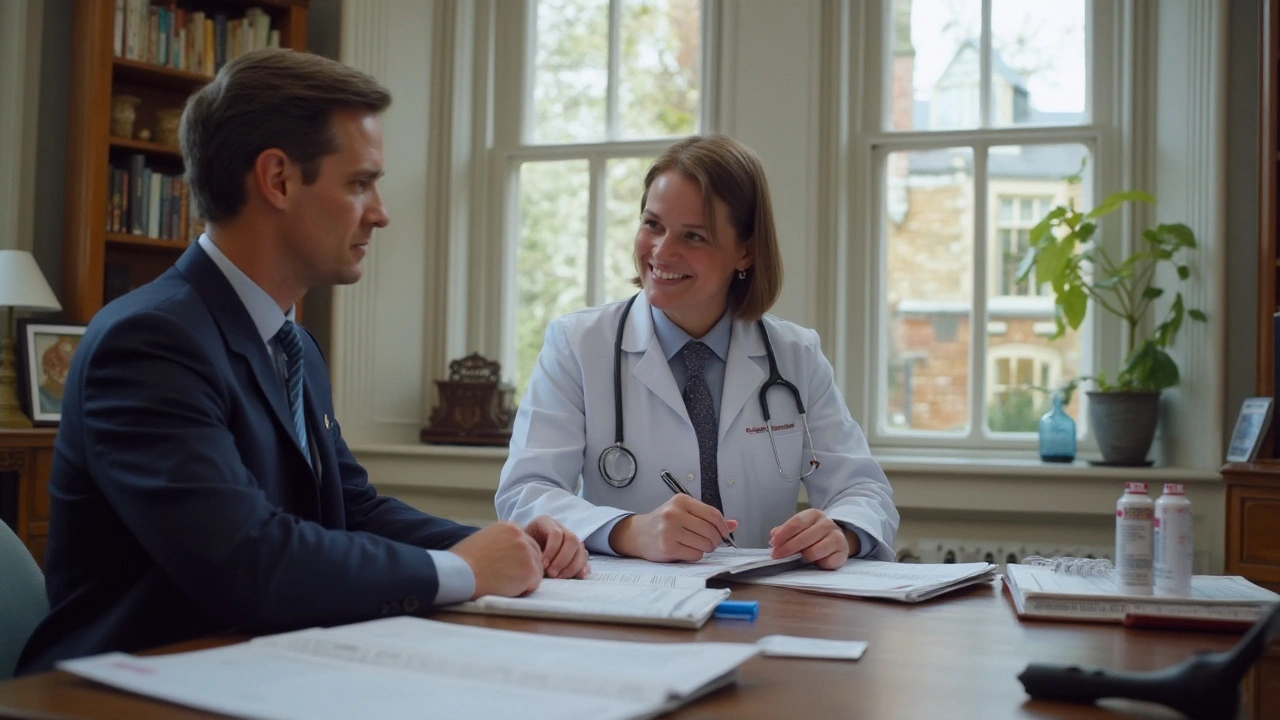Hypertension treatment: practical steps to lower blood pressure
High blood pressure is common, but you can control it. This tag page gathers clear, useful info about hypertension treatment — what works, what to watch for, and how to work with your doctor. If you want straight answers, practical tips, and safe medication advice, you’re in the right place.
Medications that work
There are several proven drug classes for hypertension: ACE inhibitors (like lisinopril), ARBs (losartan), calcium channel blockers (amlodipine), thiazide diuretics (hydrochlorothiazide), and beta blockers (metoprolol). Your doctor picks a medicine based on your age, other conditions (kidney disease, diabetes), and side effects. Don’t stop or change doses without talking to your prescriber. If one drug gives bad side effects, a switch is normal — there are alternatives.
Combining two low-dose drugs often works better than one high dose. Blood pressure usually improves over weeks, not days, so give a new plan time. If your BP stays high despite medicines, your doctor may check for secondary causes like sleep apnea, thyroid issues, or certain medications that raise pressure.
Simple lifestyle steps that lower blood pressure
Lifestyle changes can cut your numbers as much as a single drug. Try these concrete moves: aim for 150 minutes of moderate exercise a week (brisk walking counts), drop 5–10% of body weight if you're overweight, cut added salt to under 2.3 g a day, and limit alcohol to one drink for women and two for men on days you drink. Eat more vegetables, whole grains, and lean protein — the DASH diet is a practical pattern, not a strict menu.
Stress matters too. Short daily practices like deep breathing for five minutes, a brief walk, or a quick hobby break help lower spikes. Smoking raises cardiovascular risk even if it doesn't always change your BP reading, so talk to your clinician about quitting supports.
Home monitoring is powerful. Use an automated arm cuff, record readings twice daily for a week, and share the log with your clinician. That snapshot helps decide treatment changes. Beware wrist or finger cuffs — they’re often less accurate.
Watch for warning signs: very high readings (180/120 or above), chest pain, sudden weakness, severe headache, or trouble speaking — these need urgent care. Also know common medication side effects: cough from ACE inhibitors, dizziness from blood pressure drops, swelling with some calcium blockers. Report persistent problems; simple drug swaps are common.
This tag links to articles on safe online pharmacies, drug alternatives, and guides for common medicines. Use these resources to learn, ask better questions at appointments, and keep your treatment safe. If you have specific symptoms or a complex health history, get personalized advice from a clinician.
Regular blood tests and kidney checks matter if you're on certain meds — especially ACE inhibitors, ARBs, and diuretics. Your doctor will check electrolytes and kidney function before and after starting treatment. Older adults and pregnant people need special plans. Keep a list of all meds and supplements to avoid interactions. Bring that list to every appointment.
